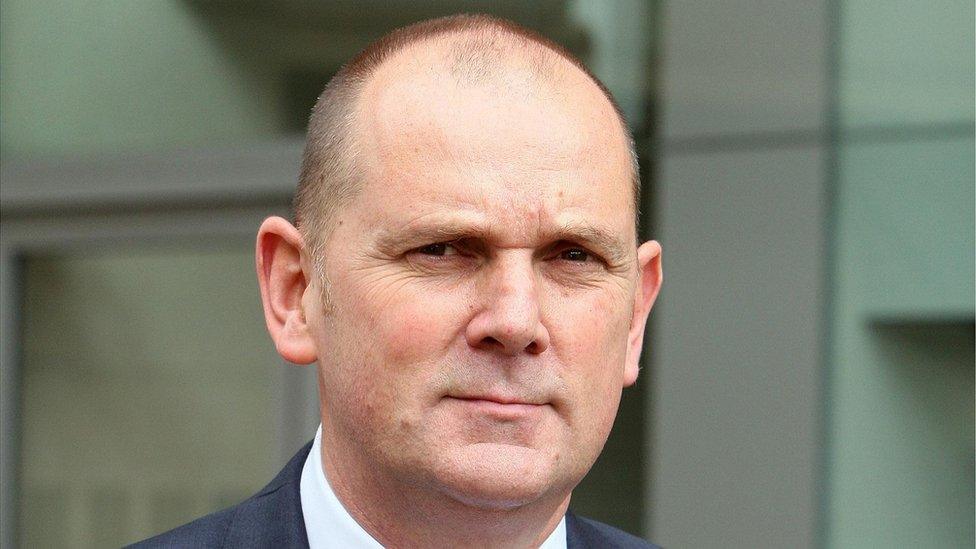Catfishing: Young victims 'should have hope' issue will be dealt with
- Published

Young catfishing victims should be given hope that the issue can be dealt with, an online child protection expert has said.
It comes after a man at the centre of one of the world's largest catfishing probes admitted manslaughter after a girl he blackmailed killed herself.
Alexander McCartney, 25, from County Armagh, previously admitted 185 charges involving more than 60 child victims.
Jim Gamble said there are ways to block or prevent images from being viewed.
"Too many people tell children what goes online stays online," he told BBC News NI's Good Morning Ulster programme.
"That takes away hope and hope is what fuels children through these difficult times."

Jim Gamble is the former head of the Child Exploitation and Online Protection centre
The former head of the Child Exploitation and Online Protection centre said there are "plenty of ways" these issues can be dealt with.
"The key is the sooner you talk to a trusted adult, the sooner something positive can be done and I'm telling you from years of experience in this field, things can be done."
Mr Gamble said educating and empowering children to better protect themselves online was key to their safety.

Alexander McCartney is due to be sentenced in May after admitting to manslaughter and other charges
On Monday, Belfast Crown Court heard a 12-year-old girl died after she was exploited by McCartney.
She was not from the UK and cannot be named due to law changes in Northern Ireland which extends anonymity to victims of sexual offences to 25 years after their death.
As well as the manslaughter charge, McCartney, from the Lissummon Road outside Newry, has pleaded guilty to 59 counts of blackmail.
There are also dozens of charges relating to making and distributing indecent photographs and a total of 70 charges of inciting children to engage in sexual activity.
The charges cover a period from 2013 to 2019 with victims being identified in both New Zealand and the USA.
'Abuse thrives on silence'
Joanne Barnes, from Nexus, which provides support to victims of domestic and sexual abuse, urged catfishing victims to speak out against their abuse.
"Abuse thrives on silence and that's what perpetrators thrive on," she told Good Morning Ulster.
"It's really important to reach out because what we don't want people to do is put a permanent solution on a temporary problem.
"This will go away, it can be resolved and we don't want people to feel that they're pushed into a situation where they have to end their own life or do serious harm to themselves."
Related topics
- Published11 March 2024
